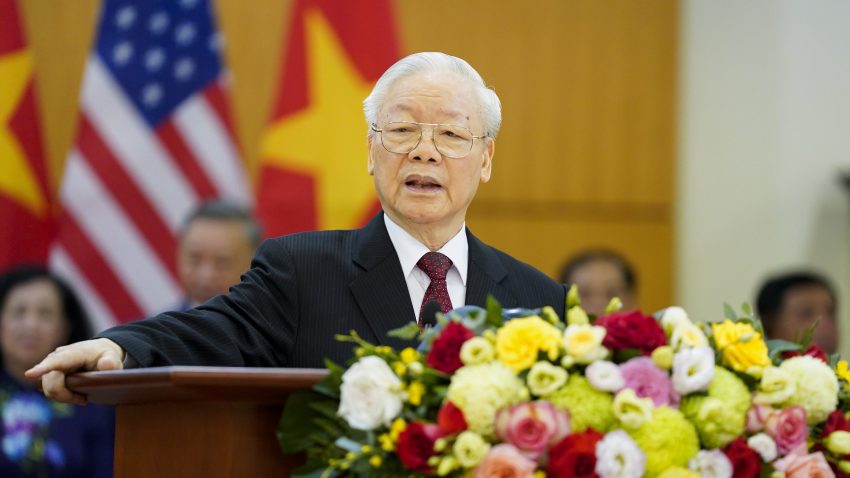The leaders of Vietnam, a one-party, opaque, and authoritarian state, usually try to present themselves as working closely together, free of discord and united on all fronts. They have sought to manage political change slowly and in an orderly fashion—historically, transitions are laid out well in advance. The current reality is far different. Behind the opaque façade, Vietnam’s leadership is now apparently both corrupt and intensely fractious, a departure from the Vietnamese Communist Party’s reputation as orderly, slow-moving and methodical.
In the past, the party has opted for authoritarian rule by consensus, akin to China in the Hu Jintao or Jiang Zemin eras, splitting responsibilities among four or five top leaders. Since party chief Nguyen Phu Trong’s appointment in 2011 and then concurrently as president in 2018, however, the Party has enabled him to concentrate an immense amount of power, in many ways like Xi Jinping in China. This leadership centralization is looking increasingly insecure: Nguyen is 80 years old and in visibly poor health, with no clear succession plan.
The political fireworks have consequences for the country’s foreign relations, its economy, and the party itself. The country now seems less well-managed and more out of control not only to Vietnamese citizens but also to its neighbors and to global powers, who are increasingly critical of Vietnam’s export-oriented economy and worried that its politics could lead to a lackluster defense against growing Chinese militarization of the South China Sea.

